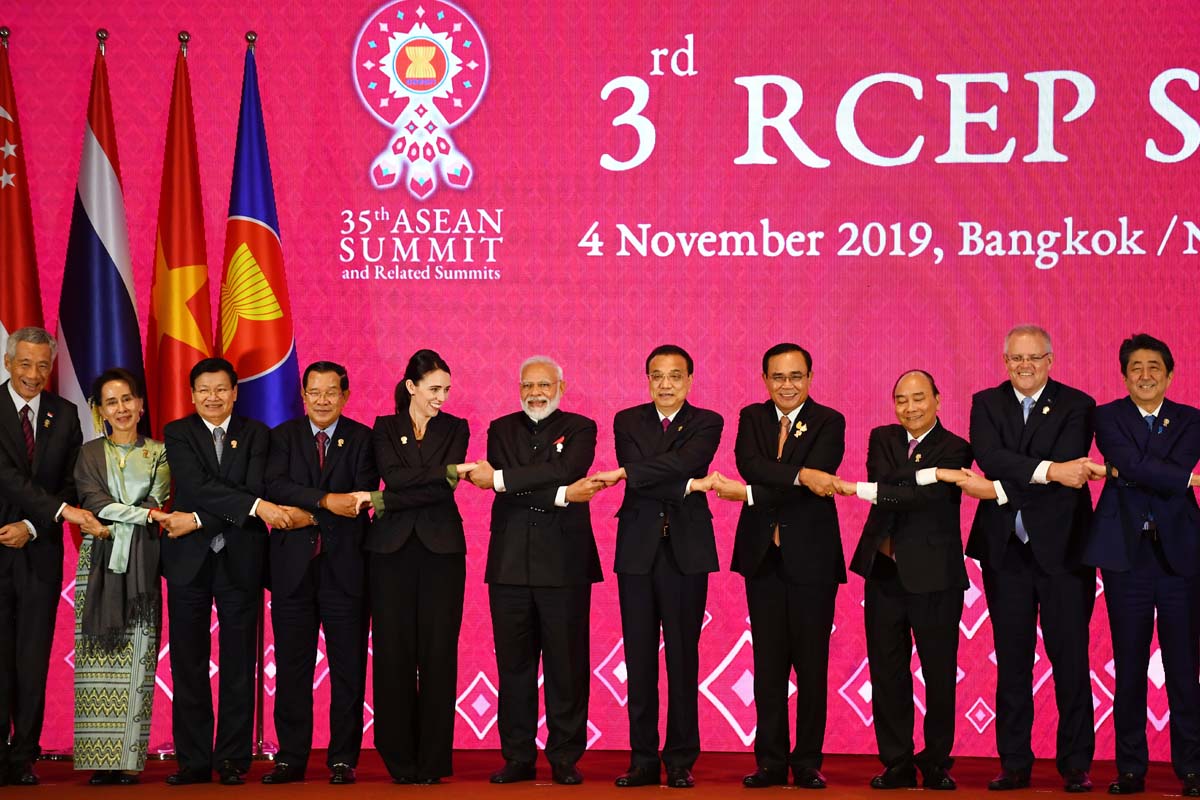Prime Minister Narendra Modi took a courageous and bold decision not to accede to the multilateral trading edifice at the Regional Comprehensive Economic Partnership (RCEP) meeting in Bangkok on Monday on the ground that the pact did not reflect the original intent and the outcome was ‘neither fair nor balanced’. In recent times this is the second courageous decision of the government after India declined to support the Chinese initiative of One Belt One Road (OBOR).
In fact, India’s major concern with RCEP was that lowering of tariffs would flood the Indian market with Chinese goods which have already affected domestic industries, particularly the MSME sector and would hurt the ‘make in India’ initiative. The dairy sector and the agriculture sector in India would also be affected under the RCEP regime, if India acceded to the pact in the present format.
Advertisement
At a time when trade and commerce is getting increasingly integrated and globalised, India tried its best to factor its interest and concerns in the protracted negotiations spanning more than six years. Although it seems that as of now India’s decision is final, the joint statement issued by the 16 countries at the end of the summit inter alia stated that India has significant outstanding issues which remain unresolved. All RCEP participant countries will work together to resolve these outstanding issues in a mutually satisfactory way. “India’s final decision will depend on satisfactory resolution of these issues.”
Australia’s Prime Minister Scott Morrison also said that the door will remain “wide open” for India to join RECEP. Thus all is not over as yet and there is still room for negotiation and influencing the collective decision. It is not that India is at the receiving end. While India can manage without RCEP, it is in the interest of the fifteen member countries, particularly China, to bring India on board to benefit from India’s burgeoning market with a huge middle-class population. It may be noted that text-based negotiations for all the 20 chapters and all their market access issues have been completed; but it is to be signed by the member countries during the Asean summit to be held in Vietnam in 2020, when Vietnam takes over as the chair of Asean. Vietnam being a close strategic partner of India, it can be expected that it may use its position to plead for addressing India’s concerns with the partner countries.
It augurs well that there was convergence among the major political parties with regard to RCEP negation, although the thrust may differ in terms of objectives and emphasis. While the Left parties were critical of the deal, the main opposition party Congress was planning a well-orchestrated campaign against it. The RSS was also critical of the deal. If the deal can be tweaked to India’s favour, it will certainly benefit the country. It is against this backdrop that the contours and contents of RCEP and India’s concerns needs to be discussed in the ensuing Parliament session likely to commence from November 18. Perhaps the Parliamentary standing committee on commerce can also take up the issue for in-depth study.
It is likely that the government suo moto will make a statement in both the Houses and it will be followed by discussion through appropriate procedural device. There should be fruitful, informed and meaningful discussion by political parties cutting across party lines. There is no need for political point scoring. The interest of the nation particularly farmers and small and medium sector industries should be highlighted. If India has to accede to the grouping at a future date, the discussion should focus on those aspects which need to be tweaked. The discussion should also focus on how India can do without the RCEP, in case India’s concerns are not finally met and India sticks to its decision.
India has a resilient economy which is largely based on domestic consumption rather than exports. India can also focus on deepening economic engagement with countries in South Asia, Africa and the Gulf, and through bilateral free trade agreement with countries in the Asia-Pacific region and elsewhere. What is needed is the competitiveness of Indian industries and attainment of world standards.
RCEP is more than a foreign policy issue. It is primarily an economic issue which has the potential impact the domestic economy and industry and the lives of people. In India as also elsewhere, the task of treaties or agreements with foreign powers is essentially a function of the executive. It is for the government to enter into and ratify treaties and agreements. It is not obligatory on part of the government to seek approval of Parliament to such treaties, unless there is a provision in the treaty itself to that effect. Article 246(1) of the Constitution empowers Parliament to make laws with respect to any of the matters enumerated in the List 1 of the seventh schedule. These are participation in international conferences, associations and other bodies, and implementation of decisions made thereat; and entering into treaties and agreements with foreign counties and implementing treaties, agreements and conventions with foreign countries.
The RCEP has already been raised on the floor of the Parliament in the recent past and now it needs to be discussed in a comprehensive manner.
(The writer was until recently a joint secretary in the Lok Sabha Secretariat and is currently a senior fellow of the Indian Council of Social Science Research affiliated to the Indian Institute of Public Administration.)











